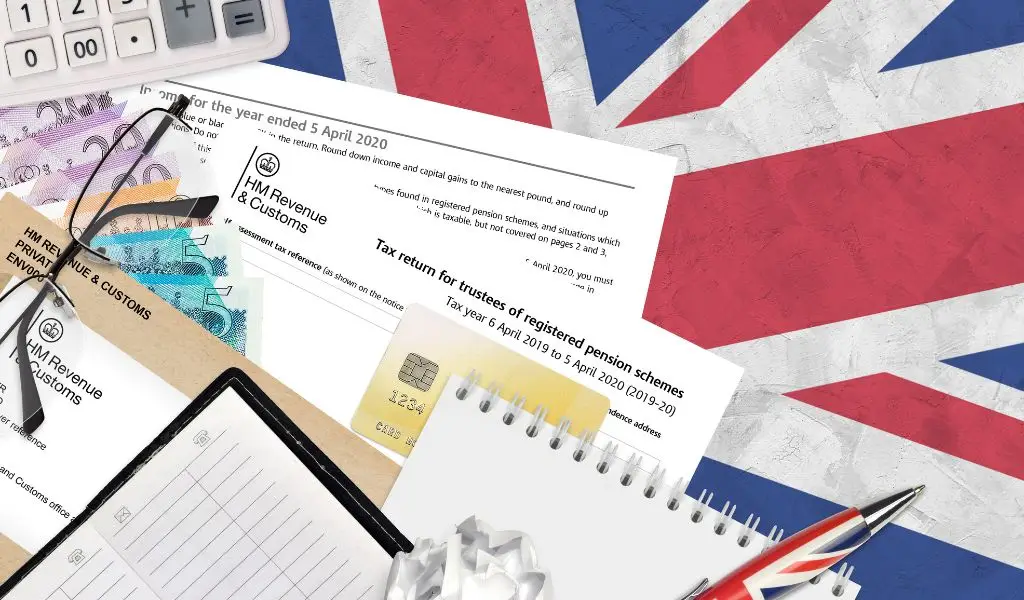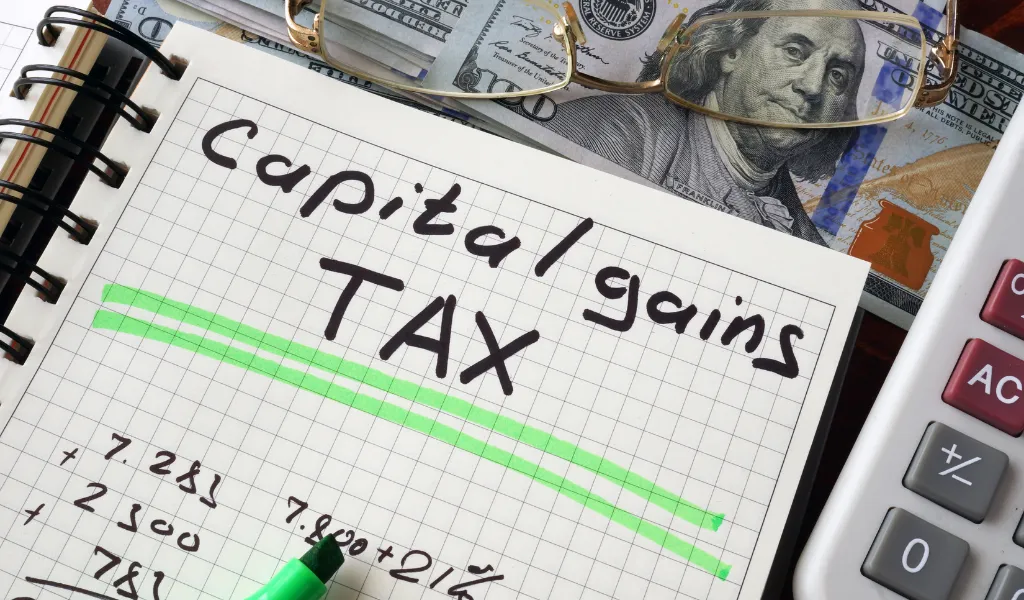When you owe money to HMRC, then they will do whatever is in their power to recover it. That is why it is in your best interest to pay them back immediately, or at least agree to do so. HMRC can resort to seizing your belongings and selling them to raise enough money to pay off your debts. You should not let it come to this option. That is why it is important to know can HMRC take your house for failing to pay debts? This guide covers that and much more.
First, let’s discuss the common debts that you may owe to HMRC.

Common HMRC Debts You Can Owe
In the UK, it is the responsibility of HMRC to provide and collect money from people. It is possible for you to get into debt with HMRC. Here are the most common debts you can owe:
- Tax credit debts because of overpayments.
- Unpaid income tax, mostly self-employed people owe this type of tax.
- Unpaid business tax. This includes VAT debts.
What Happens If You Do Not Pay the Debts You Owe to HMRC?
Please note that HMRC has lots of powers that allow them to collect arrears when you fail to pay them. It is not necessary for them to take you to court as a further action to collect the debt.
HMRC can take the following enforcement actions depending on your situation and the type of debt you owe:
- Seize your possessions and sell them.
- Take money from your earnings directly.
- Retrieve money from state pension payments.
- Outsource your debt to a debt collection agency, which is not a bailiff.
- Take out money from your bank account.
- Make you declare bankruptcy.
- Liquidate your company if the HMRC debt is in relation to your business.
In the process, further costs can apply to the debt. Suppose they use bailiffs to take your belongings and sell them. The money raised from their sale will go towards clearing the debt. This can mean auction costs and storage fees. Moreover, bailiffs charge an exorbitant fee. If they can take your belonging, can HMRC take your house for failing to pay debts?
How to Repay Your Debts
Now, the question arises that how can you repay an HMRC debt? Well, you can go for the easiest method. Through this option, you make a payment in full. Or you agree to a payment plan. This plan is referred to as the Time to Pay Arrangement. There is no need to worry about the payment plan as it is according to your circumstances. It depends on how much you and afford to repay without difficulty.
HMRC can resort to more drastic actions if you do not agree to a Time to Pay Arrangement. Which can result in more costs towards your debt. In such a situation, they can take money from your wages directly. Or take your belongings. Not to mention they can make you go bankrupt.
Can HMRC Take Your House for Failing to Pay Debts?
HMRC does not repossess your home to pay off your tax debt. However, they can recover the debt in another way. They can do so from any property sale, which is called a charging order. Through a charging order, HMRC can recover the debt that you owe. This is done through the proceeds made by selling the property. While creditors may force you to sell the property, HMRC will never force you if you only own one property.
Suppose you have considerable home equity. In that case, HMRC can request you to borrow against it and then you can repay your debt with it. You can accomplish this by taking out a secured loan against the property or through re-mortgaging.
If your debt is substantial, then they may request you to release equity in combination with a Time to Pay Arrangement. Now, you know the answer to the question, can HMRC take your house for failing to pay debts?
Can You Write Off HMRC Debt?
Although it is very rare for you to write off the debt you owe to HMRC, it is not impossible. If you have mental health issues and extreme financial difficulty, then you can qualify for remission. This grants you relief from the requirement of paying the debt. You can also partially or even fully write off certain debts by going bankrupt of using an IVA.
Can You End Up in Jail for Not Paying Debts?
No, you will not go to jail because of HMRC debts. There are various ways to recover the debt that you owe. You do not need to worry about going to prison for it. However, tax evasion can lead to imprisonment.
Will HMRC Repossess Your Home to Pay for Company Debt?
What happens if you run a Limited Company and owe debt to HMRC? In that case, HMRC cannot take your home to pay off your debt. Undoubtedly, it is difficult to run a company that is facing struggles. You can end up in a lot of debt.
There are certain steps you must take to retain your limited liability if you feel your company is in trouble. You are personally liable for any debts built up by your company if you are found guilty of wrongful conduct. This happens more often to directors than you think. If you continue to trade while the failure of your business is certain, then you are personally liable. So, can HMRC take your house for failing to pay debts?
You need to prove that you had belief within reasonable doubt that your business was salvageable if you want to avoid personal liability. For this, you must do everything you can to minimise potential losses to creditors that can lead to closure. Suppose you are going to liquidate your Limited Company through a Creditors Voluntary Liquidation (CVL). Even in such a scenario, your house is likely in your own name. This means that HMRC cannot repossess your home to recover the debt your company owes. HMRC can only take the property is if in the name of the limited company.
Therefore, HMRC can force you to sell the property to pay off the debts through Compulsory Liquidation.
What Can HMRC Take to Pay Off Company Debt?
Enforcement Officers, also called HMRC Field Officers, can enter the premises of your business through the Taking Control of Good Regulations. Then, they can list goods or assets which are equal to the value of the debt and the cost of enforcement. You must sign a Controlled Goods Agreement, which lists these assets. These goods will remain on the premises of your business, but HMRC will have control over them. Consequently, you cannot trade or sell them.
HMRC can remove assets such as IT equipment, vehicles, stocks, vehicles, and machinery through this method. They will take all this to auction and sell them to pay off any unpaid tax bills. Also, they will settle costs for selling these goods. For example, auctioneer fees or advertising costs. Can HMRC take your house for failing to pay debts?

When Can HMRC Repossess Your Home?
So, are there any circumstances under which HMRC can take your house? Well, discuss a few scenarios where this is possible:
Partnership or Sole Tradership with Unlimited Liability
HMRC can take your personal assets if your business does not pay what it owes. They can do so because no legal separation exists between you and your business. Hence, it is possible that they can take you home in this situation.
Your House is in Your Company’s Name
HMRC has the power to force your company into a compulsory liquidation. Then, the property’s value is realised, and the company’s creditors get shares to repay the debt. Moreover, if the house is in the name of the company, then they can take it and sell it any time. It does not matter if you live there or not.
In Case of an Overdrawn Director’s Account.
This happens when you owe the company money as the director. How can this occur? This takes place when a profit-making company saves tax by giving directors a small income from the profit reserves monthly. In that case, they did not pay the right tax amounts. Thus, HMRC chases them for it. They will personally chase you when the company goes into liquidation. This is because you owe money to the company. Which means that they can take your personal possessions. These include your car or even your house. They will sell it to pay back the money you owe to the company. Can HMRC take your house for failing to pay debts?
Your house is at risk if your house was used as a personal for credit and you cannot pay your debts. Under the laws of bankruptcy, it is difficult for them to take your house as it depends on factors such as dependents.
What Should You Do if Your Limited Company Owes HMRC Debt?
When your limited company owes money to HMRC, you should act swiftly and not panic. You cannot simply ignore the problem. It is not going to go away. It is ideal to reach out to a tax advisor or qualified accountant. They will evaluate your financial condition and give you your options. So, can HMRC take your house for failing to pay debts?
Additionally, you can agree to a Time to Pay Arrangement with HMRC. Through this, your debts will spread over many months. This gives you and your business room to breathe for the time being. Another option is legal counsel. If you think that the debt can lead your company into insolvency, then this is your best option.
An attorney will help you through the complex matters of taxation law and business debt. They will also explain to you your legal rights and obligations. You should maintain an open communication with HMRC. They will agree to a repayment plan with you if they can see that you are willing to take the necessary steps to pay them back.
Can HMRC Take a Jointly Owned Property?
Even if the property is jointly owned, HMRC can place a charging order on it. This remains true unless the debt is in relation to a business and the property is not an asset of the business.
Can HMRC Take Your Car to Pay Off Debts?
The short answer is yes, HMRC can take your car and sell to pay the debt you owe.
Nevertheless, they cannot seize and sell a car that is on a car financing agreement. This is because you are not the owner of that vehicle yet. HMRC sends bailiffs to repossess your car. They will store it and then sell it to pay off the debt. Bear in mind that this process adds more fees to the debt. As a result, your debt grows.
Can HMRC Chase You Outside of the UK?
It is possible for HMRC to chase you even if you are in a foreign country. They can either recover the debts from overseas or recover it through your UK finances and assets.
Here is an interesting fact:
Automatic Exchange of Information, an overseas organisation, can report information about your finances to HMRC. Therefore, you cannot escape HMRC by going abroad. You can try to get personalised HMRC debt help instead. You should know, can HMRC take your house for failing to pay debts?
The good news is that the risk of imprisonment of criminal prosecution for tax debt is quite low. You should not worry about this happening if you cannot pay tax on time. It is very rare. However, HMRC does prosecute certain people annually. However, these are people with allegations of tax evasion or serious dishonesty. HMRC will not take such extreme action simply because you did not pay your tax on time. Or even if you have trouble finding enough money to settle.
Please note that you should know what Debt Management can do in case you do not reach an agreement. Or if you simply refuse to seek it. Now, you know the answer to the question, can HMRC take your house for failing to pay debts?
How to Get Advice for Handling HMRC Debt
It is quite understandable if you worry about dealing with HMRC Debts. It is normal if you are anxious. However, there is no need for you to take stress. You can find expert advice and support on what you should do by contacting a UK debt charity. They can help you out according to your personal circumstances.
How to Contact HMRC
| Phone: | 0300 200 3300 +44 135 535 9022 (For foreigners) |
| Official app: | https://www.gov.uk/guidance/download-the-hmrc-app |
| Official website: | https://www.gov.uk/government/organisations/hm-revenue-customs |
Conclusion:
To conclude, when you owe money to HMRC, they can take many actions to recover it. You should do whatever you can to repay that amount. Also, you have the option to come to an agreement with them. This is called a Time to Pay Arrangement. If you fail to do so, then HMRC can take enforcement actions. As a result, your house is at risk in certain situations. HMRC cannot take your house to pay off the debt you owe them, however there are scenarios where it is possible. That is why it is best to know which course of action to take when you owe money to HMRC. It is ideal to seek professional help or advice in such a situation.








